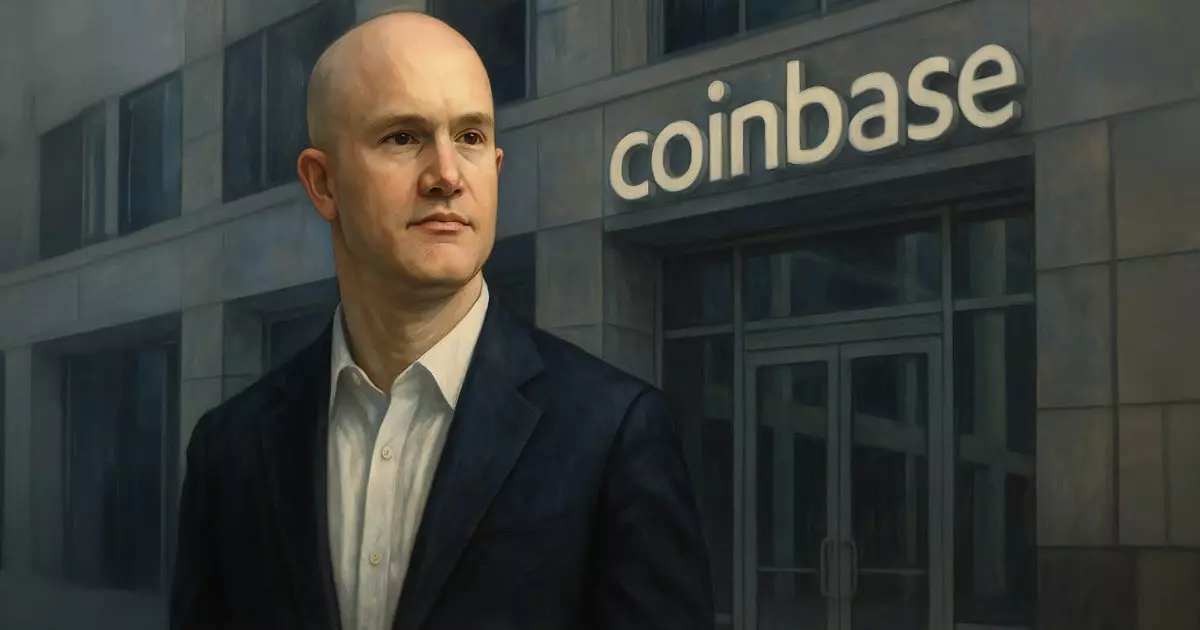In an unprecedented move, Coinbase’s CEO Brian Armstrong has openly invited employees of the US Department of Government Efficiency (DOGE) to consider transitioning to the cryptocurrency giant. In a world where bureaucracy often stifles innovation, Armstrong’s proposition resonates as both audacious and refreshing. The timing—announced on May 14—could not be better: it triggers an ongoing conversation about the future of government employees in tech-driven sectors. By encouraging ex-DOGE staff to join Coinbase, Armstrong emphasizes a more dynamic approach to public service. Instead of allowing their talents to languish within the confines of government inefficiency, these individuals could play a vital role in revolutionizing the financial system.
From Bureaucracy to Breakthrough: A New Mission at Coinbase
Armstrong’s call is particularly consequential given the current political climate surrounding public service. The DOGE initiative, which has garnered widespread attention since its launch in 2025 under President Trump, has been pivotal in eliminating operational inefficiencies within federal agencies. With high-profile figures like Elon Musk leading the charge, the program has showcased the possibility of transforming governmental functions through cost-cutting measures and a tech-savvy management style. Yet, as Musk begins to withdraw his involvement, it presents a unique opportunity for those eager to carry the torch of innovation elsewhere. Armstrong’s invitation serves as a timely reminder that there are pathways beyond traditional government roles, where skills can be utilized for broader societal benefits.
A Portal for Change: The “Done with DOGE?” Initiative
Coinbase’s dedicated portal, “Done with DOGE?”, signifies much more than job openings; it embodies a vision for the future. By expediting the application process for departing DOGE employees, Coinbase recognizes the contributions of these individuals, who might be disillusioned with the constraints of their current roles. Armstrong’s outreach subtly implies that the talent cultivated in government can be redirected powerfully within the private sector. This exchange isn’t just about recruitment; it’s about embracing a larger mission to redefine how financial systems operate in an increasingly digital world.
Tokenization of Talent: Bridging the Government and Private Sectors
The implications of this outreach go beyond mere employment offers. Armstrong’s strategic positioning places Coinbase as a beacon for innovation in an era when financial systems must be agile, responsive, and efficient. The growing convergence between government experiences and private sector opportunities highlights the necessity for a hybrid workforce adaptable to the rapidly changing landscape of technology. This bold approach not only fills Coinbase’s ranks with experienced talent but also enriches the tech ecosystem by inviting diverse perspectives shaped by public service.
Embracing the Future with Open Arms
As Coinbase makes history by becoming the first cryptocurrency firm inducted into the S&P 500, Armstrong’s invitation is emblematic of a larger societal shift—the embrace of digital assets within mainstream finance. It indicates a growing recognition that the systemic challenges facing our financial systems must be met with innovative solutions and fresh talent, much of which can be found among those departing from government roles. This isn’t just a recruitment strategy; it’s a clarion call to those willing to step outside their comfort zones and redesign the world as we know it. Armstrong’s vision places Coinbase not just at the forefront of the crypto landscape but as a formidable player in rethinking public service itself.


Leave a Reply